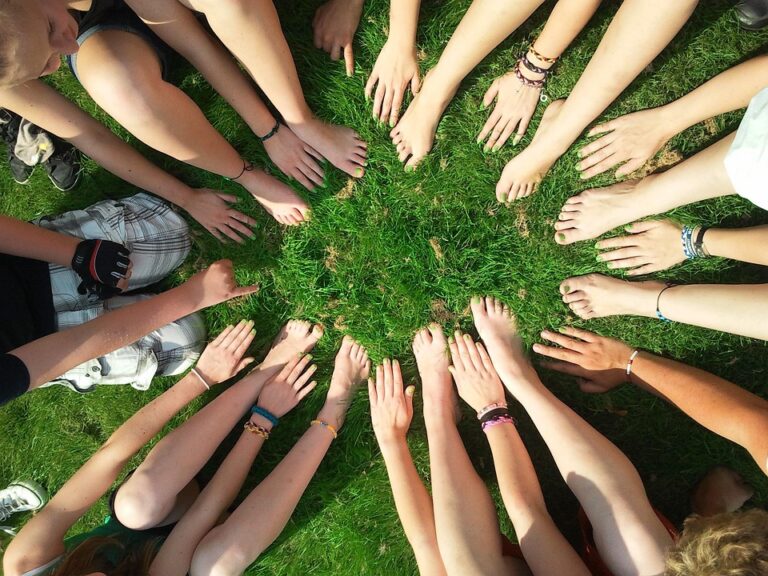Building Connections: The Role of Gaming Communities in Fostering Friendships
In recent years, gaming communities have transformed from simple online spaces for play into vibrant ecosystems that foster genuine friendships. With the rise of multiplayer games and social platforms, players are finding not only competition and entertainment but also profound connections with fellow gamers. In this article, we explore the vital role of gaming communities in building friendships, examining current trends, statistics, and real-world examples of how these connections are formed.
The Evolution of Gaming Communities
Traditionally, gaming was a more solitary experience, often confined to offline play. However, the advent of technology has spurred a significant shift. According to the Entertainment Software Association (2023), 65% of players are now engaging with others online, highlighting the importance of gaming communities in modern gaming culture.
These communities exist on various platforms, including forums, social media channels, and dedicated gaming apps. Websites like Discord and Twitch have become thriving meeting points where individuals from different parts of the world gather to share experiences, strategies, and laughter.
Why Gaming Communities Matter
Gaming communities play a crucial role in enhancing the overall gaming experience. Here are some of the ways they help foster friendships:
- Shared Interests: Players unite over common interests in specific games or genres, creating an instant connection.
- Support Systems: Many gamers find it easier to open up about personal struggles when surrounded by empathetic peers who understand their gaming experiences.
- Collaborative Play: Working together in-game builds teamwork and trust, which are essential elements in any friendship.
The Impact of Multiplayer Gaming
Multiplayer games have surged in popularity, encouraging interactions that lead to meaningful friendships. A recent survey reported that 79% of gamers believe that online gaming has helped them make friends. This is particularly evident in games like Fortnite, World of Warcraft, and Among Us, which allow for cooperative and social dynamics. These environments act as breeding grounds for friendships that may blossom into real-world connections.
The Role of Social Media in Building Connections
Aside from in-game interactions, social media has amplified the potential for gamers to connect. Platforms like Twitter, Instagram, and TikTok enable gamers to share highlights, memes, and personal stories, while building a supportive community.
For instance, popular streamers often engage with their followers, fostering a sense of belonging among their audience. These interactions can evolve into substantial friendships, with members organizing meetups or participating in charity events together.
Example: The Power of Charity Streams
A notable example is the annual Games Done Quick event, where gamers stream themselves playing various games to raise money for charity. During these events, players not only team up for a common cause but often develop friendships that endure long after the event concludes. Charitable efforts create bonds through shared experiences and collective goals, demonstrating the profound impact gaming communities can have on personal relationships.
The Statistics Speak
- According to a 2023 survey by Statista, approximately 47% of gamers reported that they formed close friendships through gaming.
- Additionally, research indicates that players who actively participate in gaming communities are 62% more likely to feel a sense of belonging, underscoring the significance of these connections.
These statistics reflect the increasing recognition of gaming not just as a pastime but as a community-building platform.
Maintaining Friendships in Gaming Communities
While many friendships formed in gaming communities start online, they can transition into real life. Here are a few tips for gamers looking to maintain these connections:
- Regular Interaction: Make time for regular gaming sessions or catch-ups on social media.
- Participate in Events: Attend gaming conventions, tournaments, or local meet-ups where members of the community gather.
- Collaborate on Projects: Consider working on gaming-related projects, such as streaming or creating content together, to deepen your bond.
Conclusion: Gaming Communities as Friendship Catalysts
Gaming communities have become much more than platforms for competition; they are thriving social networks that facilitate the formation of lasting friendships. As players unite over shared experiences and engage in cooperative play, the potential for building meaningful connections becomes evident.
For those looking to explore further, check out related articles on the impact of social media in gaming and building communities around tabletop games. If you wish to delve deeper into statistics regarding gaming communities, visit the Entertainment Software Association.
With the ongoing evolution of the gaming landscape, the role of gaming communities in nurturing friendships will only continue to grow, proving that sometimes the best way to connect is through the world of gaming.
Suggested Images
 – Gamers connecting in a vibrant gaming community.
– Gamers connecting in a vibrant gaming community. – A charity gaming event fostering friendships among participants.
– A charity gaming event fostering friendships among participants.
Through these interactions and shared experiences, gaming communities serve as a pivotal platform for forming deep and lasting relationships.


